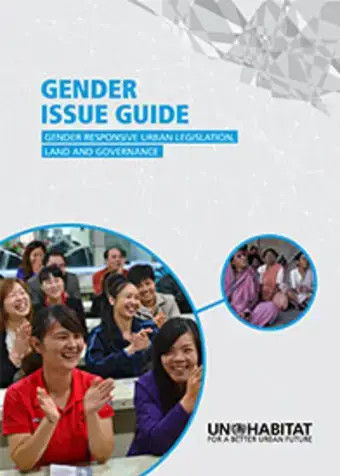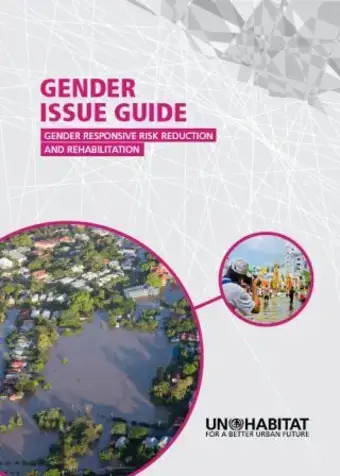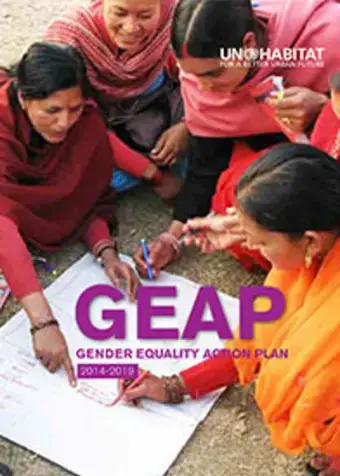 Nairobi, 28 May 2015 – Executive Director of UN-Habitat Dr. Joan Clos, together with other male members of staff, have signed the HeForShe campaign, committing to take action against all forms of violence and discrimination against women and girls.
Nairobi, 28 May 2015 – Executive Director of UN-Habitat Dr. Joan Clos, together with other male members of staff, have signed the HeForShe campaign, committing to take action against all forms of violence and discrimination against women and girls.
Engendering Sustainable Cities
 Nairobi, 20 April 2015 – A gender forum, hosted by UN-Habitat, and providing a platform for engaging, exchanging and deepening the knowledge base on gender and human settlements recently took place in the sidelines of the second Preparatory Committee for Habitat III.
Nairobi, 20 April 2015 – A gender forum, hosted by UN-Habitat, and providing a platform for engaging, exchanging and deepening the knowledge base on gender and human settlements recently took place in the sidelines of the second Preparatory Committee for Habitat III.
Access to Washing Machines: an indicator for measuring advances in the global agendas on gender, sustainability and urban quality
by Inés Sánchez de Madariaga
2015 and 2016 will be two very important years for three global agendas at the United Nations. Firstly, the gender equality agenda marks the 20th anniversary of the Beijing World Women’s Conference in which gender mainstreaming was recognized as a main tool for promoting gender equality in all fields of policy.
UN-Habitat and UN-Women host event on Public Space
New York, 24 March 2014-- During the 59th session on the Commission for the Status of Women, the Deputy Executive Director of UN-Habitat Ms. Aisa Kirabo Kacyira and the Deputy Executive Director of UN Women Lakshmi Puri co-chaired the UN-Habitat and UN WOMEN joint event titled Public Space: Opportunities and challenges for Empowering Women.



 This Policy and Plan for Gender Equality and the Empowerment of Women for 2014-19 (GPP) sets out UN-Habitat’s commitment and strategy to ensure that all its activities reflect and advance the global consensus on non-discrimination and equality between men and women.
This Policy and Plan for Gender Equality and the Empowerment of Women for 2014-19 (GPP) sets out UN-Habitat’s commitment and strategy to ensure that all its activities reflect and advance the global consensus on non-discrimination and equality between men and women.